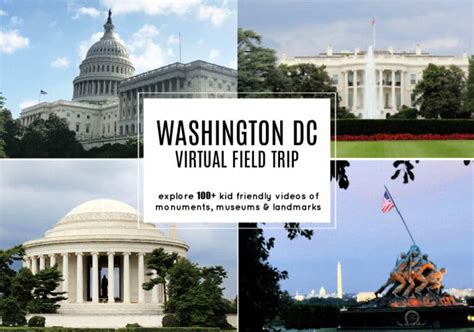Navigating a new city can be both exciting and daunting, especially when it comes to using public transportation. With the rise of metro ride planner apps, traveling through urban landscapes has never been easier. These apps not only streamline your journey but also enhance your travel experience by providing essential information at your fingertips. In this ultimate guide to efficient city travel, we’ll explore the best metro ride planner apps available, highlighting their unique features and user experiences. From real-time updates on train schedules to offline functionality for those low-signal moments, discover how these tools can help you navigate metro systems stress-free and make the most of your urban adventures.
Let’s investigate this topic extensively with elolok.net
1. Top Metro Ride Planner Apps – Highlight the best apps available for metro ride planning, including features and user reviews.
For efficient city travel, several metro ride planner apps excel in features and user satisfaction. Citymapper is a popular choice among urban travelers, offering comprehensive route planning with real-time updates, estimated travel times, and step-by-step navigation. Users value its intuitive interface and the ability to compare various transportation options.
Transit stands out as a top choice, lauded for its intuitive design and real-time updates. The app offers live tracking of buses and trains, empowering travelers to plan their trips with ease. User reviews consistently praise its seamless integration of diverse transportation options, encompassing bike-sharing and ride-hailing services.
Google Maps continues to be a popular choice for navigation due to its extensive database and consistent performance. The app provides comprehensive metro maps, multiple route options, and even details on accessibility features. Users consistently appreciate its accuracy and the added convenience of integrated walking directions.
Moovit is a great option for international travelers, offering comprehensive coverage of metro systems in over 3,000 cities across the globe. Its multilingual support and local insights are incredibly helpful, especially for those venturing abroad for the first time.
These apps, each with its own specialized features catering to diverse travel requirements, are indispensable for navigating metro systems smoothly. Users consistently praise these apps for their dependability, user-friendliness, and ability to significantly improve urban travel experiences.

2. Real-Time Updates – Importance of apps providing real-time updates on train schedules, delays, and changes.
Real-time updates are essential to metro ride planner apps, drastically improving the travel experience. In bustling urban transit systems, understanding the precise status of trains saves valuable time and reduces stress. By offering live updates on train schedules, delays, and service changes, these apps empower travelers to adjust their plans immediately, guaranteeing they board their chosen trains without needless waiting.
For example, apps like Citymapper and Transit inform users about upcoming train schedules, notifying them of any delays or cancellations. This feature is particularly helpful during peak hours when schedules are more likely to change. Furthermore, real-time updates enable users to select alternate routes, mitigating frustration caused by unforeseen disruptions.
Furthermore, real-time information empowers travelers with a sense of security, enabling them to plan their journeys with confidence. Whether commuting to work or venturing into unfamiliar territory, the ability to stay informed about transit conditions ensures a smoother, more pleasurable travel experience. This allows users to concentrate on their adventures rather than being preoccupied with logistical concerns.

3. Ease of Use – User-friendly interfaces and intuitive designs that make navigating metro systems simple.
A metro ride planner app must be easy to use. Intuitive designs can significantly enhance the user experience. The best apps have user-friendly interfaces that simplify navigation. This allows travelers to plan their journeys quickly and efficiently. For example, Citymapper has a clean, visually appealing layout. It makes it easy to view routes, transfer options, and estimated travel times at a glance. Users appreciate the straightforward process of entering their starting point and destination. The app provides clear instructions and options.
Transit stands out in this area with its user-friendly interface that focuses on key information. The app effectively displays nearby transit options and provides quick access to the fastest routes with a single tap. Its straightforward design has earned praise from many users, making it particularly appealing for those new to navigating metro systems.
Google Maps offers a comprehensive navigation experience by seamlessly integrating metro ride planning with its existing features. This allows users to effortlessly transition between different travel options, such as walking, cycling, or using public transport. This flexibility caters to the diverse preferences of travelers, ensuring a tailored journey for everyone.
Metro ride planner apps make navigating unfamiliar cities a breeze. Their ease of use allows travelers to explore with confidence, minimizing anxiety and enriching their overall travel experience. A well-crafted app can turn a potentially stressful journey into a seamless and delightful adventure.

4. Multi-City Compatibility – Apps that support metro systems in multiple cities for travelers visiting different locations.
For frequent travelers exploring new urban destinations, multi-city compatibility is a game-changer for metro ride planner apps. Navigating diverse metro systems around the globe can be overwhelming, but apps supporting multiple cities offer a streamlined travel experience. Moovit stands out as a leader in this area, boasting comprehensive coverage for over 3,000 cities worldwide. This vast network eliminates the need for users to download separate apps for each location, enabling seamless navigation through unfamiliar transit systems.
Citymapper shines in its multi-city capabilities, offering comprehensive metro maps and live updates for a wide range of major cities. Its seamless city switching feature makes it a perfect choice for tourists or business travelers navigating multiple urban centers. The app’s intuitive interface guarantees easy access to transit information, regardless of your location.
Navigating public transportation in unfamiliar cities can be a daunting task. However, the ability to plan routes in advance using a multi-city transit app not only saves valuable time but also instills confidence in travelers. Whether exploring the bustling streets of Tokyo, the romantic avenues of Paris, or the iconic landmarks of New York, a reliable app that covers multiple cities allows adventurers to relax and fully immerse themselves in their surroundings, free from the stress of navigating public transportation. This versatile tool is truly invaluable for maximizing travel experiences.
5. Offline Functionality – Planners that work without internet access, crucial for underground or low-signal areas.
For travelers navigating underground metro systems, offline functionality is essential. Many metro lines, especially those that go deep underground, often experience poor or nonexistent signal reception. Recognizing this challenge, apps like Moovit and Citymapper offer offline capabilities, allowing users to pre-download metro maps and essential route information for offline access. This feature ensures riders can plan their journey even when they are without internet connectivity.
Offline access empowers travelers to navigate transit systems seamlessly. By providing access to route options, schedules, and station information without an internet connection, it eliminates reliance on constant connectivity. This feature not only enhances convenience but also alleviates anxiety associated with navigating unfamiliar transit systems in areas with limited signal. Users can confidently explore tunnels and basements, assured that critical information is readily available.
Furthermore, offline capabilities contribute to reduced data consumption, making these apps a budget-friendly option for international travelers. By guaranteeing access to essential transit details, these apps enable users to navigate metro systems seamlessly and efficiently, regardless of their destination.
6. Additional Features – Extra features like fare calculators, route optimization, and accessibility options.
Beyond basic navigation and scheduling, numerous metro ride planner apps provide a wealth of additional features designed to elevate the travel experience. One such feature is the fare calculator, which empowers users to estimate the cost of their journey based on their chosen route. This feature proves especially useful for budget-conscious travelers, allowing them to make informed decisions about their transportation options. Apps like Citymapper incorporate fare estimates alongside route suggestions, facilitating the selection of the most economical travel choices for users.
These apps also excel in route optimization. They leverage real-time information and user preferences to recommend the quickest or most efficient routes, factoring in transfers and wait times. This feature is particularly beneficial for busy commuters and tourists, enabling them to make the most of their time in the city.
Accessibility features are crucial for making metro systems user-friendly for everyone. Numerous apps, such as Transit, offer information on wheelchair-accessible routes and stations, addressing the needs of passengers with mobility impairments.
These extra features not only boost the capabilities of metro ride planner apps but also enhance user contentment, ultimately making urban travel more accessible and streamlined for all.
7. User Tips and Tricks – Practical advice from experienced users on maximizing the benefits of metro ride planner apps.
To fully capitalize on the advantages of metro ride planner apps, seasoned users suggest a few practical tips. Firstly, it’s essential to update the app prior to any journey, ensuring you have access to the most recent maps and features. This is particularly crucial for apps such as Moovit and Citymapper, known for their frequent data updates that reflect real-time conditions.
Secondly, leverage offline functionality by pre-downloading metro maps and crucial information prior to your journey. This can be invaluable in locations with limited internet access.
To make the most of your journey, become acquainted with the app’s features, including fare calculators and accessibility options. Many users recommend exploring various routes within the app to discover the quickest or most budget-friendly options.
Finally, staying informed about real-time updates and alerts is crucial to avoid delays and unexpected changes. By adhering to these suggestions, travelers can confidently navigate metro systems and maximize their urban experiences.
In conclusion, metro ride planner apps are essential tools for navigating urban environments efficiently. With features like real-time updates, offline functionality, and multi-city compatibility, these apps enhance the travel experience. By utilizing user-friendly interfaces and additional features, travelers can enjoy stress-free journeys and make the most of their adventures in cities around the world.
elolok.net